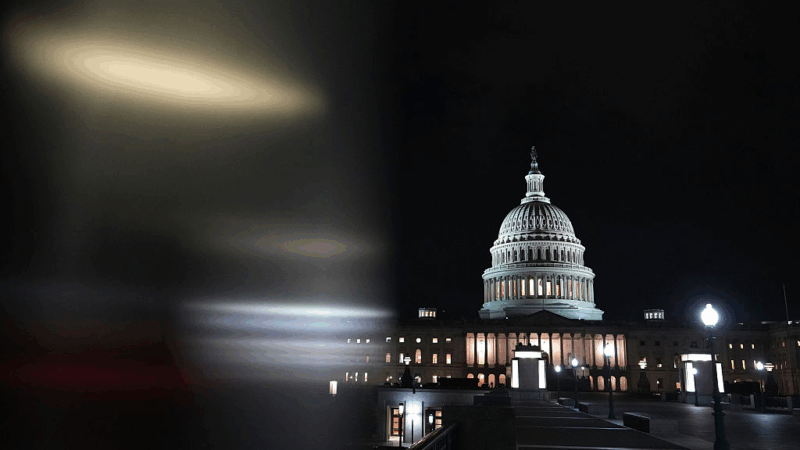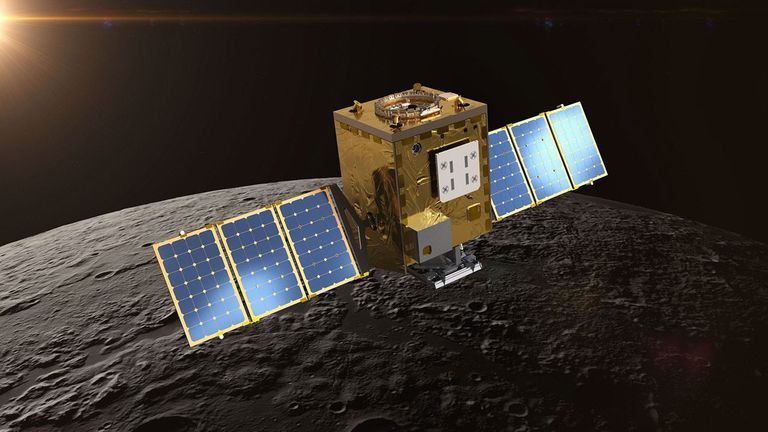Poll: Most feel democracy is threatened and political violence is a major problem
Ahead of the July 4 holiday and the country’s 249th birthday, three-quarters of Americans say democracy is under serious threat, according to a new NPR/PBS News/Marist poll.
Nearly three-quarters also see politically motivated violence as a major problem.
The findings come at a time of great political volatility. In the midst of Donald Trump’s second term as president, the country is polarized and sharply divided.
The U.S. is grappling with what it means to be American, who is essential to its story, who belongs, who doesn’t and which direction the country should take — all while Americans are expressing very little faith in its political leadership, the survey finds.
Marist interviewed 1,381 adults from June 23-25. Respondents were reached via text message or online. The survey was available in both English and Spanish. The poll has a +/- 2.9 percentage point margin of error. The survey was weighted to reflect the demographic breakdowns in the U.S. Census.
Who thinks democracy is threatened
The overwhelming majority of respondents — 76% — said democracy is under serious threat. That’s statistically unchanged from April of this year, but down significantly from August of 2023 when 87% overall said there was a serious threat to democracy.
Republicans are largely responsible for the decline, going from 88% saying there was a serious threat — while Democrat Joe Biden was president — to 57% now.
In this most recent poll, 89% of Democrats, 80% of independents and 57% of Republicans said there is a serious threat to the future of democracy. Respondents did not specify what they see as constituting that threat, and Democrats and Republicans likely have very different reasons for saying so.
Loading…
There was no meaningful difference by race, income or education, but those who most see democracy under serious threat were people who voted for former Vice President Kamala Harris and white women, regardless of college education — 85% of white women with degrees and 81% of white women without them said the threat was serious, compared to 70% of white men with degrees and 67% of white men without them.
Politically motivated violence is seen as a major problem
Here, too, a significant majority — 73% — said they see politically motivated violence as a major problem.
While there was little difference by political party, there was some division by race and age. While majorities of Latinos, Black voters and younger voters saw politically motivated violence as a major problem, they were more than 10 points less likely to say so than whites and older voters.
Here, again white women with college degrees (83%) were the most likely to say it’s a major problem, followed closely by those 60 and older (81%), as well as white women without degrees (80%).
There is little confidence in political leadership
Whether it’s Trump, congressional Republicans or congressional Democrats, respondents do not have much confidence in their elected leaders.
Overall, Trump gets just a 43% job approval. His handling of immigration mirrors his overall rating, and people have even less faith in his handling of foreign policy (41%) or the economy (39%).
Loading…
As for the parties themselves, just 35% approve of the job congressional Republicans are doing — and that’s the highest Marist has recorded ever since it started asking the question back in 2011.
As for congressional Democrats, just 27% approve of them, their lowest score in seven years.
Loading…
The glaring difference between the parties’ ratings is how people in their own parties see them. While 73% of Republicans approve of congressional Republicans, just 44% of Democrats approve of congressional Democrats.
Notably, there’s no generational divide. In fact, the older Democrats were in this survey, the more likely they were to disapprove of congressional Democrats.
Who belongs in the country is a major political divide
Almost two-thirds said America’s openness to people from all over the world is essential to what the country is.
But Republicans diverged sharply from Democrats and independents on that question. While 85% of Democrats and 68% of independents agreed, 62% of Republicans said if America is too open to people from all over the world, it risks losing its identity as a nation.
Trump’s deportation policies mirrored his overall approval on immigration — 43% said the administration’s policies are making the country safer, 33% said less safe and another quarter said they’re not really having an impact either way.
When digging into who should stay and who should go, there was broad support for deporting people convicted of crimes who are in the country without authorization, less support for deporting agricultural and food industry workers, and a divide over those in the country on expired student visas.
Republicans, though, are heavily in favor of deporting all of them.
Loading…
As for Immigration and Customs Enforcement, a majority (54%) think it has gone too far in enforcing immigration laws. About a quarter said ICE is doing about right, while almost 1 in 5 think it hasn’t gone far enough.
People continue to say Trump should follow court orders
More than 4 in 5 said presidents should follow court orders even if he or she doesn’t like them. That includes 70% of Republicans, but only 22% of Republicans strongly agree with that statement.
Loading…
There’s a split over Iran attacks
Respondents split down the middle — 50%-50% — on whether they agree or disagree with the U.S. attacks on Iran’s nuclear facilities.
Three-quarters of Democrats and 54% of independents disagree, while a sweeping majority of Republicans (84%) agree.
The attacks are very polarizing, likely reflecting views of Trump himself: 53% of Republicans strongly agree with the attacks, while 46% of Democrats strongly disagree. (As noted above, Trump has a 43% approval rating — another 43% strongly disapprove of the job he’s doing.)
Forty-eight percent of respondents said Iran is a major threat to the security of the United States, as opposed to 39% who said it posed a minor threat. Just 13% said it is no threat at all.
Gen Z and millennials were most likely to say it represents no threat — roughly 1-in-5 said so.
Three-quarters of people said they’re concerned about retaliation. Trump voters were the most likely to say they were not concerned about it (38%).
Deadline looms as Anthropic rejects Pentagon demands it remove AI safeguards
The Defense Department has been feuding with Anthropic over military uses of its artificial intelligence tools. At stake are hundreds of millions of dollars in contracts and access to some of the most advanced AI on the planet.
Hillary Clinton calls House Oversight questioning ‘repetitive’ in 6 hour deposition
In more than seven hours behind closed doors, former Secretary of State Hillary Clinton answered questions from the House Oversight Committee as it investigates Jeffrey Epstein.
Chicagoans pay respects to Jesse Jackson as cross-country memorial services begin
Memorial services for the Rev. Jesse Jackson Sr. to honor his long civil rights legacy begin in Chicago. Events will also take place in Washington, D.C., and South Carolina, where he was born and began his activism.
In reversal, Warner Bros. jilts Netflix for Paramount
Warner Bros. says Paramount's sweetened bid to buy the whole company is "superior" to an $83 billion deal it struck with Netflix for just its streaming services, studios, and intellectual property.
Trump’s ballroom project can continue for now, court says
A US District Judge denied a preservation group's effort to put a pause on construction
NASA lost a lunar spacecraft one day after launch. A new report details what went wrong
Why did a $72 million mission to study water on the moon fail so soon after launch? A new NASA report has the answer.







